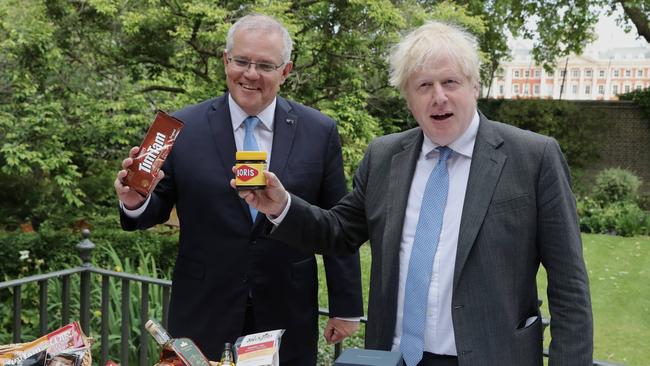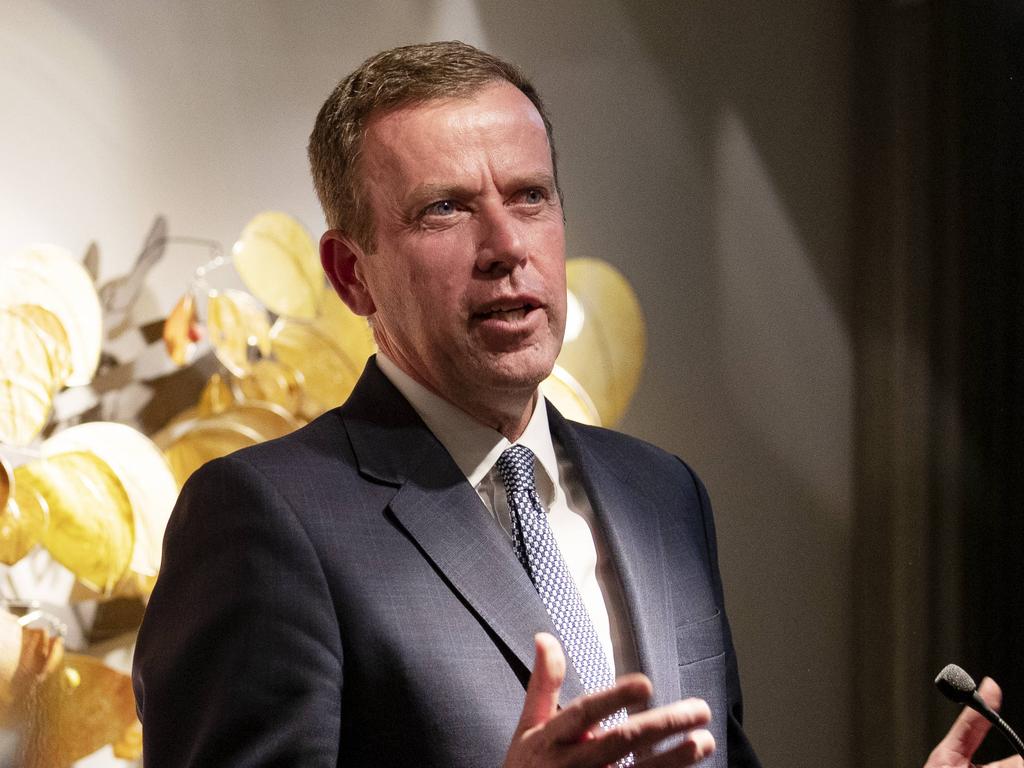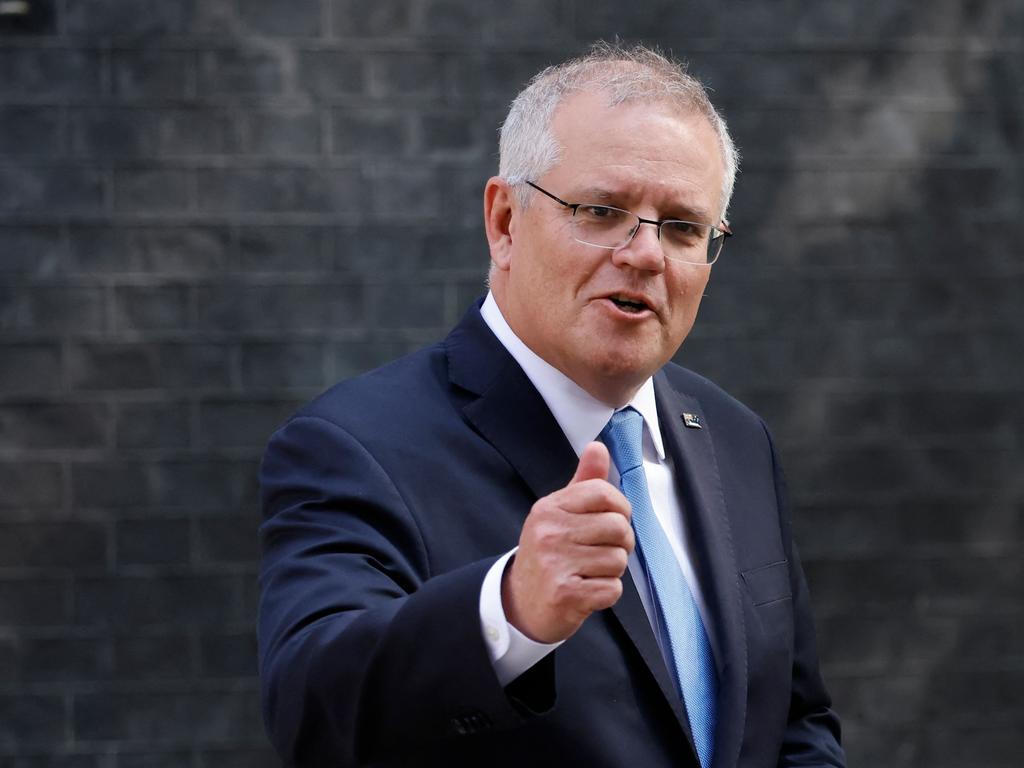Coalition scores points on trade and new Your Future, Your Super legislation

As signalled by Trade Minister Dan Tehan at The Australian’s Global Food Forum, the government has referred China to the World Trade Organisation over its outrageous tariffs on Australian wine makers of between 116 per cent and 220 per cent, which saw wine exports plummet from $1.1bn to just $20m.
Wine is the second case.
China’s knee-jerk tariffs imposed on Australia barley last year also sit with the WTO.
Prime Minister Scott Morrison’s trip to Cornwall for the G7 Plus has steeled the government to stand up to China on trade.
Side meetings with leaders from Britain, the US, France, Singapore and earlier New Zealand have secured critical support among like-minded nations who want to see respect for global institutions like the WTO restored.
This diplomatic effort has been achieved without any unfortunate optics of Australia goading China from the front of the pack, as there were when it led the charge for an inquiry into Covid-19’s origin.
Wesfarmers chairman Michael Chaney notes that China has been well aware of growing concerns from Britain, Canada and the US around trade restrictions and is at risk in the medium term if it lacks soft power.
“It’s OK to say ‘we are big and you rely on us’ but eventually, as you do in business, you need people to be on your side if you are trading with them,” he said. Last week’s signing by Prime Ministers Scott Morrison and Boris Johnson of an agreement in principle for the Australia-Britain free trade agreement puts our nation at the front of the queue for Britain’s first post-Brexit deal.
Much is being made of problems on the agricultural chapter of this FTA and that tariff changes may well take 10 to 15 years to bed in.
But agriculture is inevitably the last box to be ticked in FTAs, with farmers and unions forcing governments to play to their respective domestic markets.
The immediate and significant gains of this FTA will be on cross-investment, skills mobility and services: it is worth noting that both Britain and Australia are service-led, not manufacturing- or farm-led economies.
Just as the 2005 free trade agreement with America led to huge investment from the US tech giants in Australia, so too will the British deal deliver new opportunity.
The British Environment Secretary’s ambition to link carbon emissions with Australian farm exports, despite the protests of International Trade Secretary Liz Truss, is still being haggled out in the fine print of the trade deal.
Scott Morrison can take a bow, however, after Australia remained a small target on climate change at the G7 with a “watch what I do, not what I say” line on emissions reduction – to the surprise and dismay of Labor and the Greens, who had expected a much bigger brouhaha on climate, led by PM Johnson.
As the saying goes, if you get out of the lion’s den alive, you don’t go back for your hat. Whether the PM returns to Glasgow for COP21 in November is unconfirmed.
There is much Coalition politics to play out before then and five months of progress to make on further mitigating emissions.
Domestically the unemployment numbers just keep surprising on the low side, to the delight of Treasurer Josh Frydenberg.
Sure, we now live in an artificial and presumably temporarily buoyed economy where consumers can’t leave the country and are pouring savings into domestic tourism.
Politically, although the vaccine rollout continues to trouble the government, the jobs recovery is impressive.
Finally, in passing the Your Super, Your Future legislation last week, the government can now boast of reform at least in one part of the economy.
And here, two women deserve special mention. It was ASIC deputy chair Karen Chester who drove the super reform agenda with the landmark Productivity Commission report that laid bare the problem of super: savings hit by duplicate accounts, poor management and high fees as people moved jobs. And Financial Services Minister Jane Hume has had responsibility for the bill’s passage, requiring careful negotiations with both retail and industry super and winning over crossbenchers Pauline Hanson, Jacqui Lambie and Stirling Griff.






The bluster of National Party politics over the weekend drowned out an otherwise pretty strong fortnight for the government, both on the trade front and here at home with the passing of the Your Future, Your Super legislation.